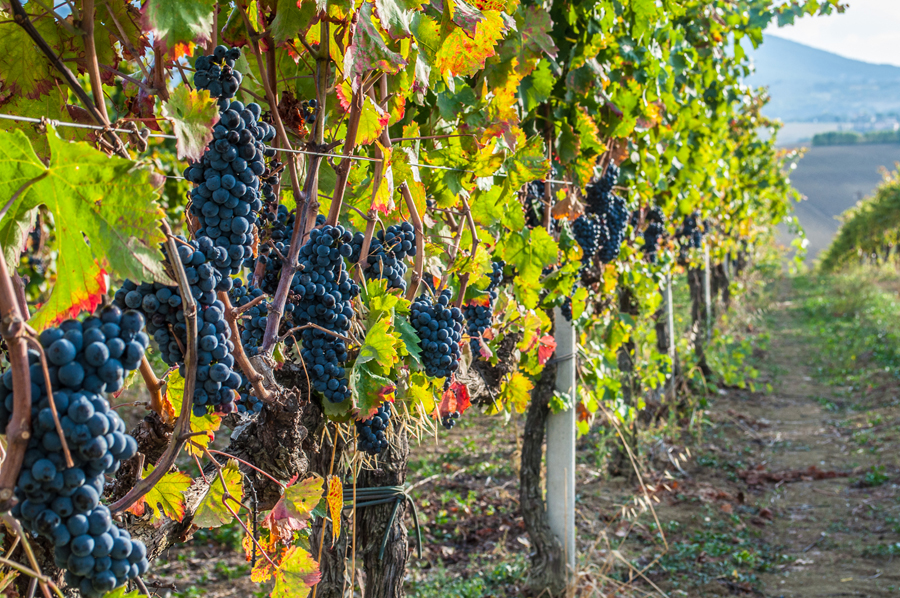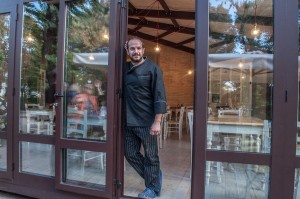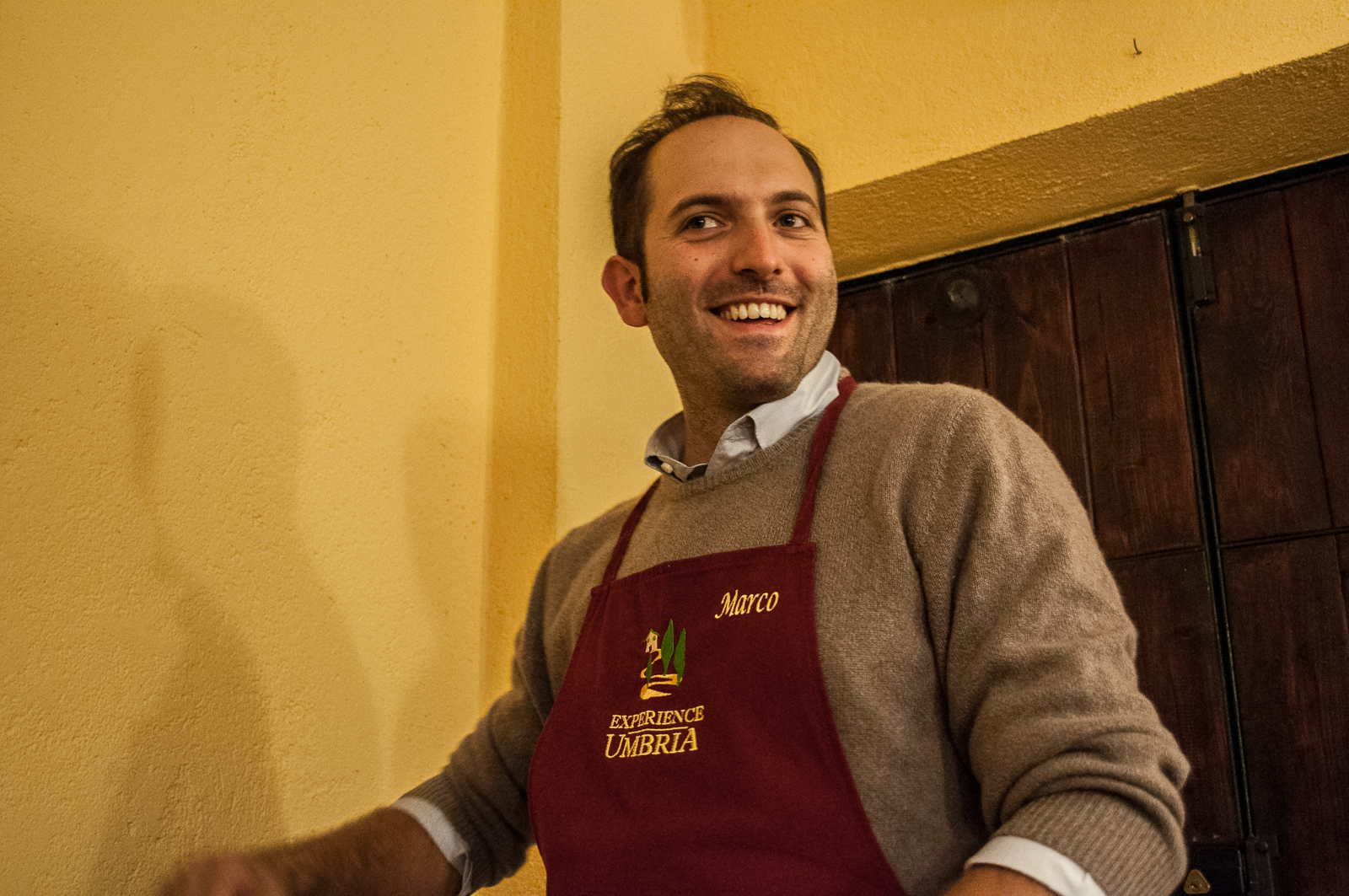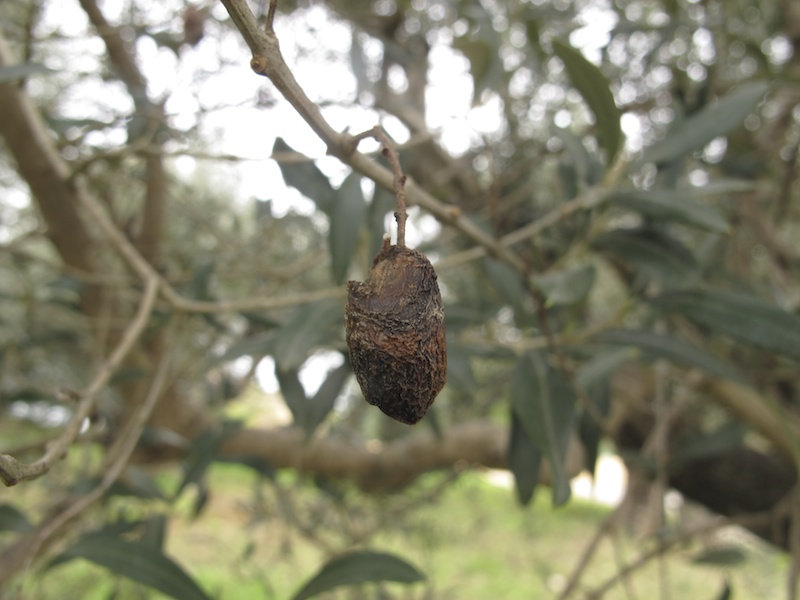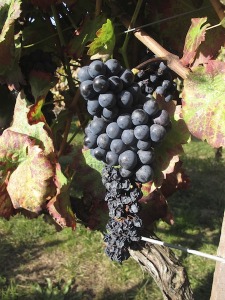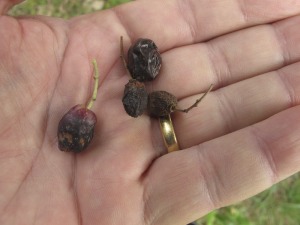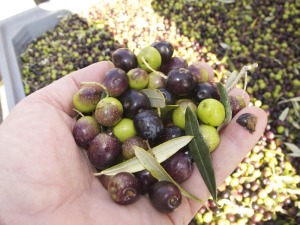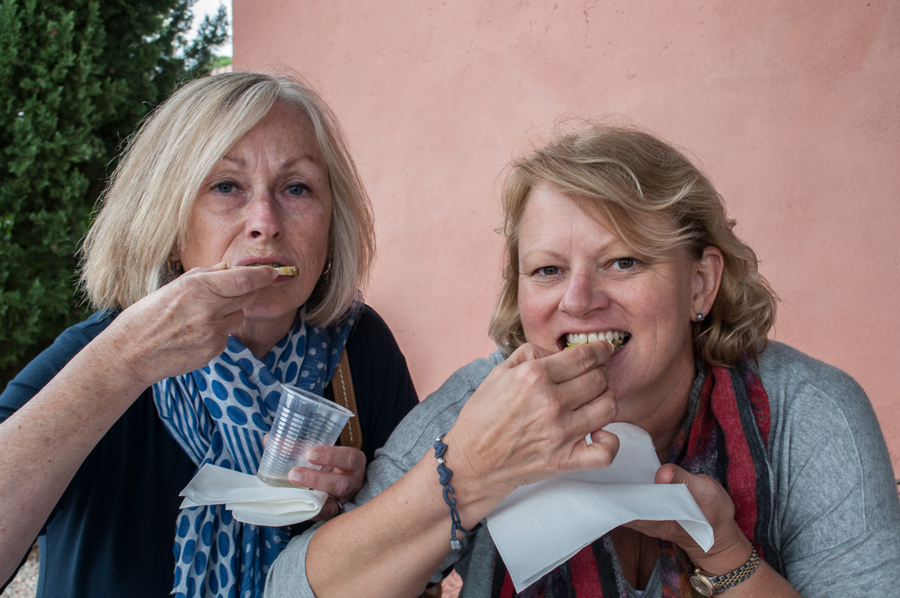 We’re back in Umbria for our annual fall pilgrimage, our fall Food and Wine tour. This year Suzy and I are hosting two small groups over two week long itineraries, which we plan to punctuate with a brief side trip to Piemonte (for the White Truffle Festival) before returning home to DC. We have the small matter of reopening Via Umbria to attend to back home.
We’re back in Umbria for our annual fall pilgrimage, our fall Food and Wine tour. This year Suzy and I are hosting two small groups over two week long itineraries, which we plan to punctuate with a brief side trip to Piemonte (for the White Truffle Festival) before returning home to DC. We have the small matter of reopening Via Umbria to attend to back home.
Returning to Umbria, particularly during the fall harvest, is always a homecoming of sorts for us, summoning up a host of emotions and memories. It is a special time of year, with the orange and rust hues of the vineyards, each one in a different state of harvest, combined with the early evenfall to create a sense of quiet and peacefulness tinged with just a po’ di malincholia.
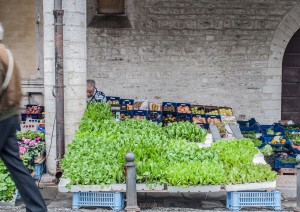 We come to Umbria this year as we have for the past eight, on a mission to offer our Food and Wine tour guests an opportunity to discover with us the Umbria we have come to know and love. A land where the earth gives forth an incredibly rich bounty, coaxed lovingly from nature by men and women who respect nature by taking what it has to offer and leaving it better off than they found it.
We come to Umbria this year as we have for the past eight, on a mission to offer our Food and Wine tour guests an opportunity to discover with us the Umbria we have come to know and love. A land where the earth gives forth an incredibly rich bounty, coaxed lovingly from nature by men and women who respect nature by taking what it has to offer and leaving it better off than they found it.
But we come this year, too, with eyes even wider open than normal, seeking to put our finger on those elusive sights, sounds and smells that when combined together shout out “benvenuto in Italia.” To identify those iconic details that define Italy so we can bottle them up and bring the back home with us, spraying them into the air on Wisconsin Avenue so that our customers, breathing deeply of them will know what it is to experience Italy.
Our Food and Wine tour this year is not just an exercise in loving the here and now, it is a mission to capture and bring home the essence of Italy so we can share it. For nearly two decades we have been bringing back pieces of Italy to share with our customers. This fall we are tasked with bringing back the nature of Italy itself.
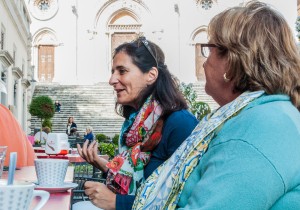 How better to understand Italy than by experiencing the bounty of its land and its people. And so we started our trip, a group of eight, by exploring the Etruscan town of Todi and the Umbrian settlement of Gubbio. By delighting in the recounting of the history of these places by a guide with palpable pride in her land. By lingering over meals of local meats and cheeses, regional pastas and wines that come from here and can only come from here. By getting to know Simone, our driver, and each other.
How better to understand Italy than by experiencing the bounty of its land and its people. And so we started our trip, a group of eight, by exploring the Etruscan town of Todi and the Umbrian settlement of Gubbio. By delighting in the recounting of the history of these places by a guide with palpable pride in her land. By lingering over meals of local meats and cheeses, regional pastas and wines that come from here and can only come from here. By getting to know Simone, our driver, and each other.
What better way of exploring what makes Italy Italy and what makes Umbria Umbria than to arrive at the farmhouse on our first day and to discover Ernesto Parziani, the chef and owner of our favorite local restaurant Perbacco, in the kitchen of our farmhouse with his daughter, preparing the first night’s dinner. To spend time in the kitchen with Ernesto and Agata rolling balls of baccala, pureeing broccoli for gnocchi alla romana, of discussing the menu, discussing family, discussing nothing at all.
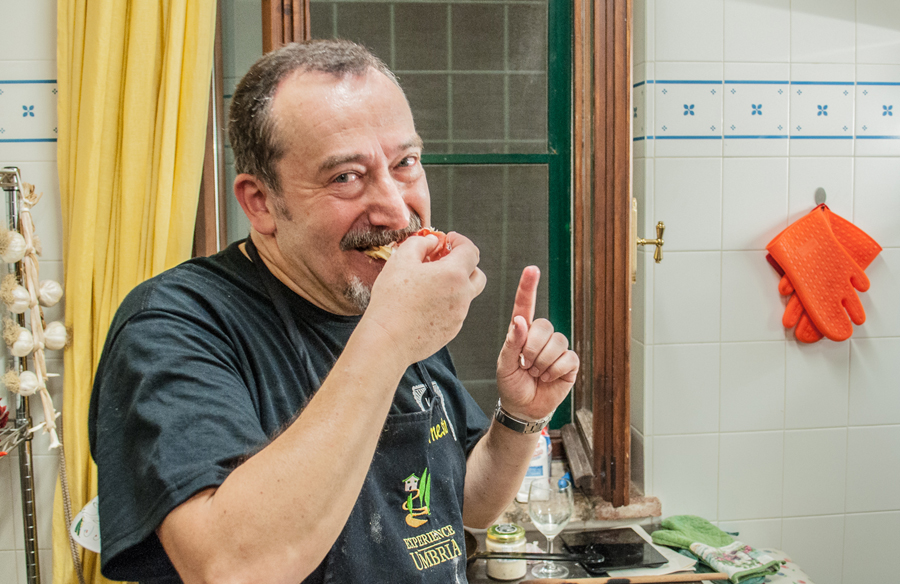
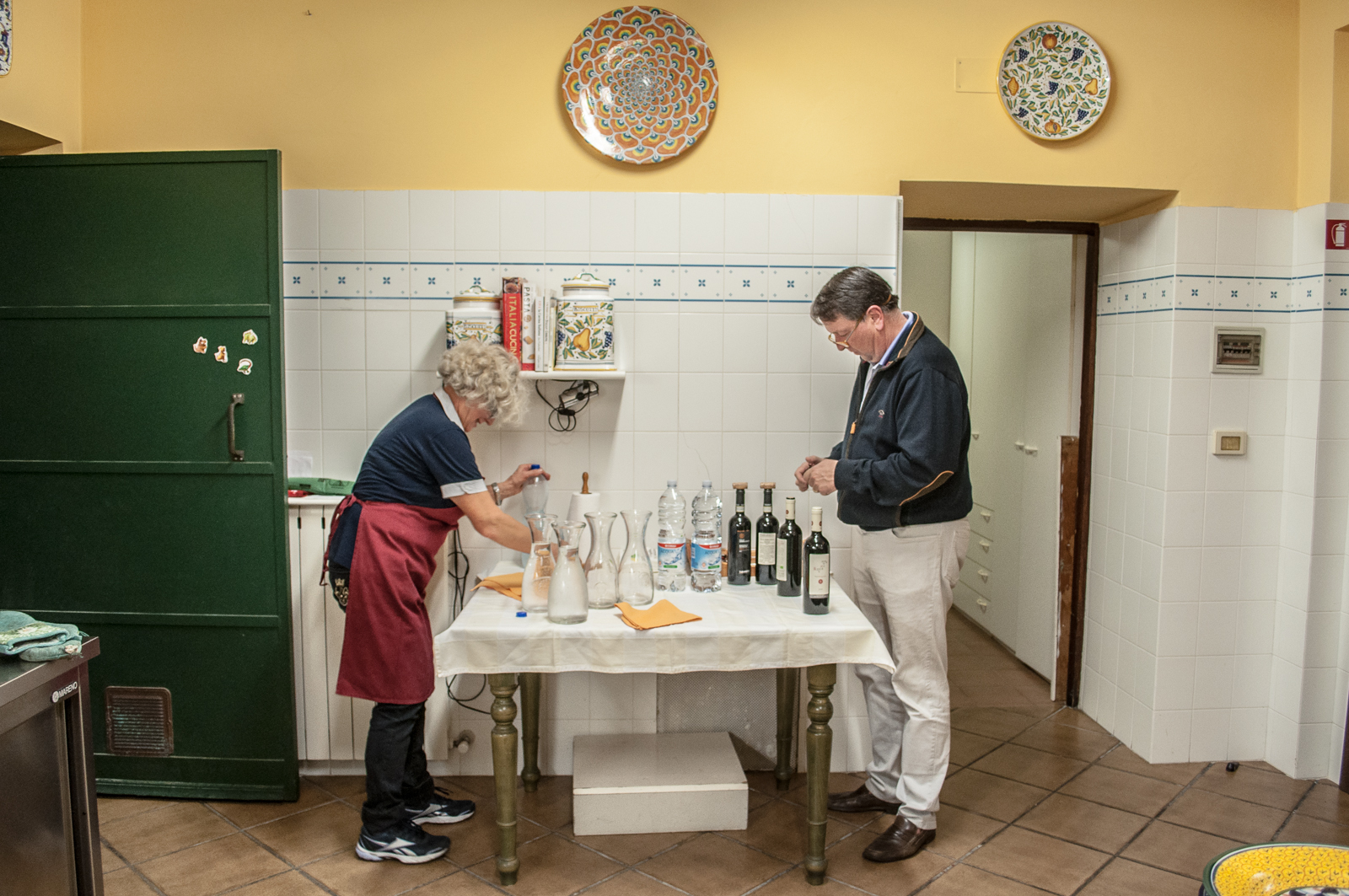 What better way of enjoying our first evening in Italy than by sitting down over this home cooked feast and culinary history lesson with the new friends we have made, our travel companions for this week, along with Ernesto and his wife Simona. To drink wines that our friends the Pardis have labored over just a dozen miles from here. To talk and eat and laugh and relax deep into the night long after most mortals would have succumbed to jet lag.
What better way of enjoying our first evening in Italy than by sitting down over this home cooked feast and culinary history lesson with the new friends we have made, our travel companions for this week, along with Ernesto and his wife Simona. To drink wines that our friends the Pardis have labored over just a dozen miles from here. To talk and eat and laugh and relax deep into the night long after most mortals would have succumbed to jet lag.
Suzy and I have long maintained how difficult it is to neatly and cleanly and succinctly define Italy and the Italian experience. There simply is no one thing that says it all, no Tower of Pisa, no fettuccine alfredo, no Madonna col bambino that one can point to and say, “ecco qua, Italia!” Yet we keep coming back, time after time, and millions of visitors keep making the pilgrimage to the boot each year for that something special that speaks to them.
In the end, maybe it is just simply its incredible bounty that defines Italy, that makes Italy Italy. Perhaps that is the magic potion Suzy and I are searching for. Italy itself didn’t even exist a little more than 150 years ago, a crazy quilt of city-states, kingdoms, alliances and fiefdoms then and even now resembles less a well ordered English country garden and more the wild, natural orto that we find when we step out back, behind our farmhouse kitchen.
After our first night back in Umbria, following a day of discovery, of enjoyment, of relaxing and of peace and contentment, perhaps we are inching closer to understanding the secret that is Italy. Perhaps it is not one thing that makes Italy Italy, perhaps it is the sweep, the bounty of this place. But those things – the food, the wine, the landscape, the history, the art, the lyrical language, crazy drivers in tiny cars and museum-like cities – they are not the answer themselves. They are the things that satisfy the cravings that Suzy has. That I have. That our tour guests have. That Ernesto and Simona have. Each craving personal, each craving as deep as the soul and each craving desperately in search of satisfaction. Put simply, Italy feeds what you hunger for.
Italy, with its richness and its willingness to let you live in the here and now, scratches the itch, the longing in our souls for connection and meaning. And as far as we have figured it out, it does it better than any other place on earth.
Perhaps that is the secret of Italy, the ingredient we can bottle up and bring back to Georgetown with us. Suzy and I certainly look forward to testing this hypothesis for the next three weeks.
Ci vediamo!
Bill and Suzy


